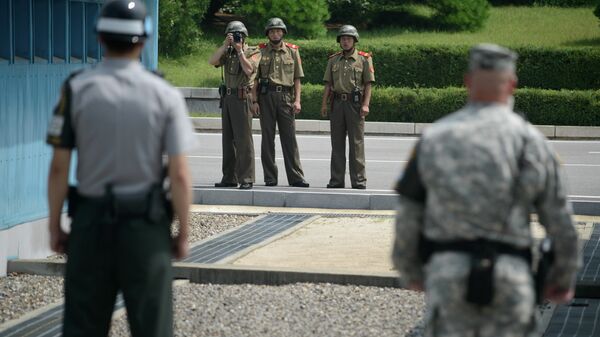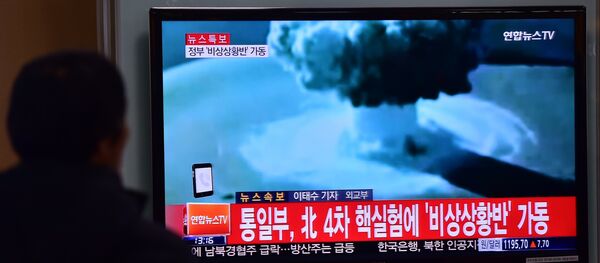WASHINGTON (Sputnik) — US polices of aggression in the Middle East over the past decade have taught nations in the region to acquire nuclear weapons to deter possible future American efforts to topple their governments and kill their neighbors as the US did in Iraq and Libya, New York Director of the Nuclear Age Peace Foundation Alice Slater told Sputnik on Friday.
“It cannot have escaped the notice of North Korea that after Saddam Hussein's nuclear program was ended after the first Gulf War and Muammar Gaddafi voluntarily gave up his nuclear weapons program, one wound up dead in a hole in the ground and the other in a sewer pipe in Libya,” she stated.
Despite US President Barack Obama’s rhetoric about reining in the spread of atomic weapons, he pushed ahead with efforts to give nuclear capabilities to nations across the Middle East, Slater observed.
“It is telling that at the same time we made the deal with Iran to rein in their 'peaceful' nuclear power program and secure their enriched uranium in Russia, we promised 'peaceful' nuclear reactors to Saudi Arabia, United Arab Emirates and Turkey so they too will have their bomb in the basement,” she said.
Slater said the United States needed to seek an agreement with Russia and other nuclear-armed nations to end the global atomic arms race instead of pushing ahead with its current enormous strategic weapons renewal program.
“The only way to control the further spread of nuclear weapons and unforeseeable nuclear disaster is for the US and the other nuclear nations, Russia, the United Kingdom, France, China, Israel, India, and Pakistan, to give up their nuclear weapons and negotiate a treaty for [their] total abolition,” she said.
However, US policies of continually expanding NATO across Eurasia and seeking the military domination of space prevented Russia from agreeing to any such initiative, Slater pointed out.
Russia and China have proposed a new space weapons ban treaty, but the United States has been blocking any progress on it since the treaty was first tabled in Geneva in 2008, Slater noted.
North Korea’s continued efforts to develop and expand its own nuclear arsenal were being pursued in reaction to a continued policy of isolation and aggression against Pyongyang by the US government, Slater noted.
“People are not aware that we still have 38,000 US troops stationed on the North Korean border and there have been many bad faith sabotages of proposed negotiations to bring North Korea back into the family of nations,” she added.
The North Koreans were also closely watching the latest US moves to expand its already massive nuclear arsenal, Slater concluded.


